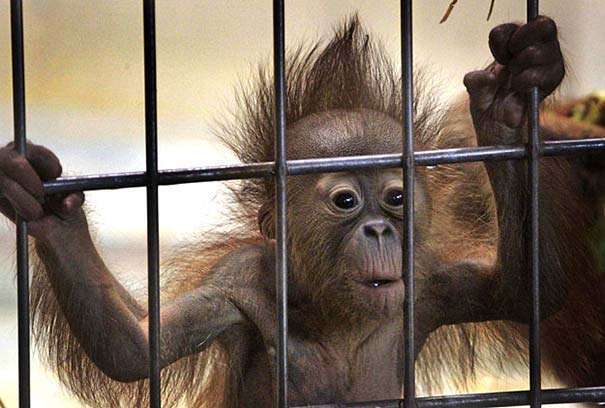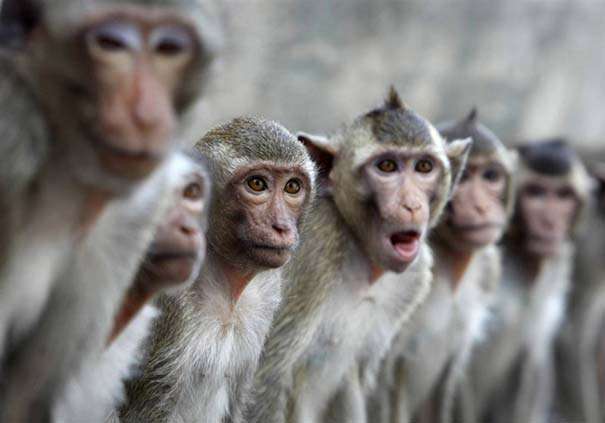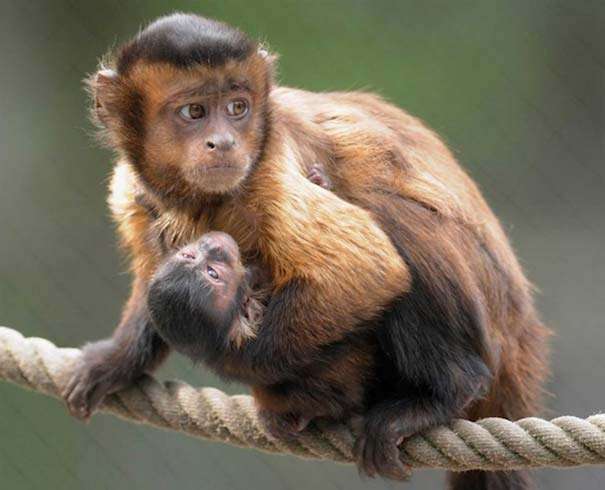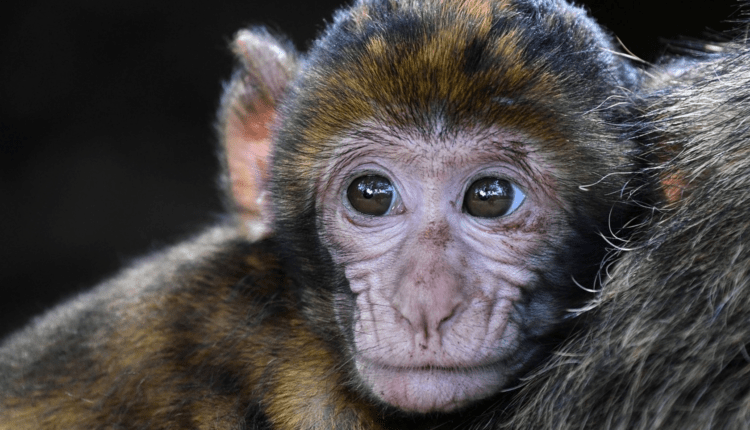At present, humanity has reached considerable heights of development in various fields of science. Few people think about it, but many of these discoveries were made thanks to animals. For many centuries, scientists have used rats, dogs, dolphins and, of course, monkeys as experimental subjects.
It has been proven that chimpanzees have a better working memory than humans
Working memory is a form of short-term memory in which the brain is able to process several thoughts at the same time. Most often, people suffering from severe mental disorders have this ability, and a normal person, unfortunately, will not be able to cope with such a task.

Scientists believe that such abilities are necessary for chimpanzees to survive in the wild, because these animals often need to make an instant quick decision in order to escape from a suddenly appeared predator.
Cage and Banana Experience #1
Oddly enough, some experiments on monkeys allow researchers to better understand human psychology, however, scientists still cannot explain the reasons for this or that behavior of primates.
For example, if you put 5 monkeys in a cage, hang a bunch of bananas from the ceiling and pour ice water on all the monkeys when one of them tries to get bananas, then by the end of the experiment the behavior of the monkeys will be very difficult to explain. So, when one of the monkeys tries to get bananas, the other four, remembering that after this action a cold shower will follow, pounce on it and do not allow them to get tasty fruits.
Then, instead of one of the wet monkeys, another, dry one, is launched into the cage. Naturally, when she sees the bananas, she goes in their direction and encounters resistance from already wet relatives, who do not allow her to approach the bananas. After that, another wet monkey is replaced in the same way with a dry one. All four monkeys, including the one that was not watered at all, are prevented from approaching the fruit by all four monkeys.
Then, in the same way, all monkeys are gradually replaced until all dry animals remain in the cage, which were not watered at all. But they still won’t let each other get bananas.
Video about experiments on monkeys
Cage and Banana Experience #2
The cage contains five chimpanzees and a ladder with a banana on the top step. When one of the monkeys tries to climb the stairs and get a banana, a faucet with ice water is turned on from above and the animal is knocked down the stairs by a powerful jet. When other monkeys try to get a treat, the same thing happens. Eventually the monkeys give up trying to get the banana.
Then one wet monkey is replaced by a new, dry one. As soon as she comes to the ladder with the banana, the other chimpanzees do not allow her to climb the ladder, so that she also does not fall under the stream of water, they attack her, push her away and beat her.
After that, another wet monkey is replaced with a new one. When she enters the cage, the predecessor, who decides that this is how newcomers should be met, rushes at her and beats her. At the same time, the new monkey did not even have time to notice the banana on the stairs, but it was already battered.

By the end of the experiment, the monkeys are so busy fighting that they don’t even think about the banana lying on the stairs. Their only concern is to watch the door, so that when a new chimpanzee appears, they will jump on it and beat it.
monkey head transplant
American scientist Robert White made the world’s first successful attempt at a real head transplant. Before him, other scientists had already performed head transplant surgery: one canine head was transplanted onto the body of another, live dog, but White decided to go further. He transplanted the head of a chimpanzee onto the body of another decapitated chimpanzee. The experience was so successful that the monkey came to his senses after the operation and even nearly bit one of White’s team members.
But, since this experiment was carried out in the 70s, when scientists were not yet able to attach the brain to the spinal cord, the experimental monkey lay motionless and could not move the body. After the operation, she lived less than two days.
Nowadays, thanks to new discoveries in the field of medicine, scientists began to assert that such operations can be performed with a high probability of success on humans. Since there are so many people in the world with incurable diseases who are simply doomed to die, such operations can give them a chance for salvation.
It is proved that monkeys can distinguish good from bad
British university zoologists have made an interesting discovery. They found that monkeys distinguish between good and bad deeds and draw their own conclusions about people or their relatives.

It turned out that the animals took treats from the hands of all people, with the exception of those who refused to help.
In this case, various situations were reproduced. So, if the person to whom they turned for help was busy with some other business and could not help, because he was busy himself, then the monkeys did not refuse to take food from his hands. But if a person had the opportunity to help, but did not, the monkeys stayed away from him.
Scientists have found that chimpanzees and capuchins are endowed with the ability to distinguish bad deeds from good deeds. They believe that this ability to evaluate the behavior of other creatures based on their own actions developed in monkeys in the process of evolution.
